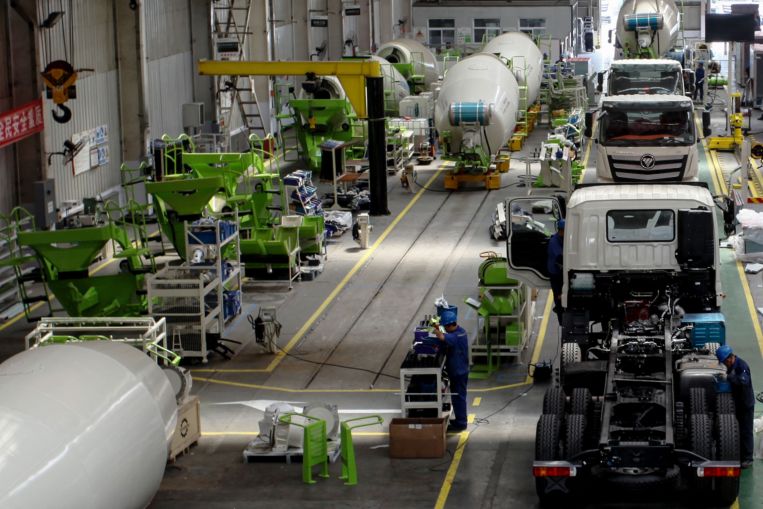BEIJING (REUTERS) – Growth in China’s factory output slowed for a third straight month in May, possibly due to disruptions caused by Covid-19 outbreaks in the country’s southern export powerhouse of Guangdong.
The Chinese economy has largely shaken off the gloom from the coronavirus-induced slump last year, but officials warn the foundations for the recovery are not yet secure amid challenges including rising raw material prices and global supply chain disruptions, especially a shortage of micro chips.
Industrial production grew 8.8 per cent in May from a year ago, slower than the 9.8 per cent uptick in April, National Bureau of Statistics data showed on Wednesday (June 16).
That missed a 9.0 per cent on-year rise forecast by analysts from a Reuters poll.
Most China watchers had expected some moderation in May output due to softer export orders, higher cost pressures for factories and tighter environmental restrictions on heavy industry. But they said underlying activity still appears solid, even if headline growth figures are heavily distorted by comparisons to the pandemic plunge early last year.
Outbreaks of Covid-19 in the Pearl River Delta since late May have brought some key ports to a standstill, economists at Nomura said in a note to clients, though it believes the current spate of infections can be contained in a relatively short period of time and backlogs cleared.
Retail sales rose 12.4 per cent year on year in May, weaker than 13.6 per cent growth expected by analysts and down from the 17.7 per cent jump seen in April. Chinese consumer and business confidence has been picking up thanks to pent-up demand and quickening vaccine roll-outs, which are also reviving domestic tourism.
Fixed asset investment increased 15.4 per cent in the first five months from the same period a year earlier, versus a forecast 16.9 per cent rise, slowing from January-April’s 19.9 per cent increase.
Earlier data for May painted a somewhat mixed picture, with export growth easing but imports picking up, fuelled by surging demand and prices for raw materials.
Surging commodities prices pushed China’s producer inflation to its highest level in over 12 years, squeezing profit margins for mid- and downstream firms.
Bank lending unexpectedly rose in May but broader credit growth continued to slow, a trend analysts said could start to weigh on activity in the second half of the year.













































